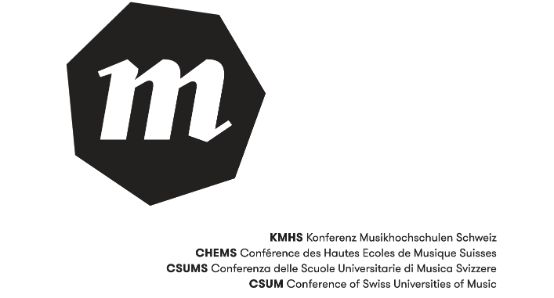Strengthening Music in Society
During the congress of the European Association of Conservatories (AEC) which took place in October 2022 in Antwerp, an article entitled 'Musicians as makers in society: a conceptual foundation for contemporary professional higher music education' caused a stir. This aims to put at the heart of the tertiary space of music education certain concepts such as artistic citizenship, critical reflection, cultural entrepreneurship and social commitment.

Antoine Gilliéron - So how can we train today very high-level young musicians who are also artists capable of positively impacting society beyond their musical practice? This article intends to highlight good practices in our Hautes Écoles of Music on this subject.
The ideas listed above in relation to social and civic responsibility are explored in this seminal article in their interactions with historically central concepts for music education, namely artistic excellence, imagination and creativity as well as musical heritage.
Based on the particular ethnomusicological notion of musicking (see insert), the latter provides dynamic responses to the needs of society. The role of musician being therefore defined as a creator in society, this vision is supported on the one hand by an immersion in the artistic milieu and on the other hand by a sustained practical experience within the city with the intention of guaranteeing a transition to professional life capable of responding to the problems encountered by the communities.
Thus, a change of paradigm is recognized by all the parties involved as necessary to restore the conceptual foundation of the musical space of higher education. The aim is to support and strengthen professional musical practices in this sense by paying attention to this change of paradigm and to the interdependent relationships that it reveals between the vision, artisanship and art of a musician and their commitment to and for society. Maintaining this flow of energy between artistry and imagination on the one hand, and pertinence and social commitment on the other, is a central and growing challenge for the HEMs of our country.
" L'HEMU prend ses quartiers " is a project of mediation aimed at ensuring that the students in the Master of Education carry out a work of democratization of music in the popular neighbourhoods of Lausanne.
"Les concerts du cœur" supported by HEM Genève - Neuchâtel aims to bring music into the EMS, hospitals and prisons by offering free concerts to the local population.
À Lugano, an initiative of the school of music aims to offer free courses to Ukrainian refugee students and especially students of Russian and Ukrainian nationality.
On the Bâle side, the presence of the Haute École in society is manifested in various projects such as musical mediation in museums, health and educational institutions and even fundraising to help Ukraine in humanitarian aid.
" Music in context " à Berne allows structurer les curriculums via l'organization des majors et minors autour de la question centrale de la médiation culturelle et des formats de concerts innovants.
Lucerne, Zurich and Kalaidos also propose such initiatives which, without a shadow of a doubt, contribute enormously to social cohesion, to the revival of the role of musicians in society and to the broadening of professional perspectives for music students.
The essence of music does not lie in the musical works, but in the participation in the presentation of these works and in social action. Music is therefore not just a name but a verb: to make music. Faire de la musique, c'est prendre part, sous toutes ses formes, à une performance musicale, et le sens du musicking réside ainsi dans les relations qui s'établissent entre les participant.es (y compris le public) par la performance. Music is part of this iconic and gestural process, which consists of giving and receiving information about the relationships that unite the living world. It is in fact a ritual through which the participants not only learn, but also directly experience the way in which they position themselves or should position themselves in relation to human beings and the rest of the world. These ideal relationships are often extremely complex, too complex to be expressed in words, but they are expressed effortlessly through musical performance, allowing the participants to explore, affirm and celebrate them. Music is therefore just as important for our humanity as participation in acts of speech, and all human beings are capable of taking part in it, not only by understanding the existing gestures, but also by creating their own.








